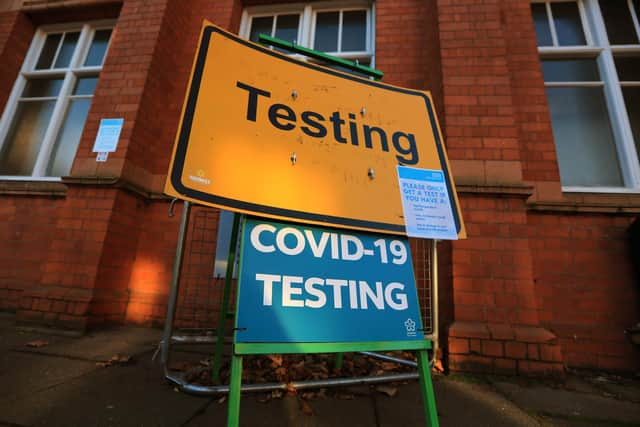Demonisation of the poor shows how we are failing as a society - Stewart Lansley
In March, Lee Anderson, the deputy Conservative Party chairman, accused Britons of ‘abusing’ food banks, by treating them as ‘the weekly shop’ and then going to McDonald’s.
In April, the Department for Work and Pensions launched a new campaign against ‘benefit cheats’. It was illustrated with images of DWP and Met officers on a dawn raid.
Advertisement
Hide AdAdvertisement
Hide AdDemonisation of the poor is hardly new. It has been endemic for decades, with ministers (Labour as well as Tory) and the popular press dismissing those on benefits as, in the words of George Osborne in 2012, ‘shirkers`. The policy response has seen a return to the Victorian claim that poverty is largely self-inflicted and state help should come on the harshest of terms. Social scientists have dismissed such deliberate shaming as ‘othering’. The political philosopher Adela Cortina has described these deep-seated anti-poor attitudes as ‘aporophobia’, a process of pervasive exclusion, stigmatisation, and humiliation of the poor.


In the last 40 years, Britain’s benefit system for working age adults has become both increasingly mean and more and more coercive. Since 2010, around 8 million sanctions – or fines - have been issued against claimants often for minor breaches of DWP rules such as missing or being late for a job centre interview. According to the academic David Webster, the DWP was, in the mid-2010s, levying more fines than the criminal justice system. This has been one of the principal drivers of the surge in dependency on charitable help for food and other necessities. It seems that the principles of the Victorian Poor Law carries as much if not more weight over social policy today than the wholly different value system laid down by William Beveridge which helped drive post-war social reform.
Through much of its history, Britain has fallen short of a key test of an effective democracy – that all citizens should be treated by common standards. As in the pre-war era, society today is based on tiered membership, with some citizens granted fewer rights and more responsibilities than others.
As George Orwell noted in 1941, Britain is like a family, with ‘rich relations who have to be kow-towed to, and poor relations who are horribly sat upon’. This heavily tiered system was weakened in the post-war decades as more national wealth was socialised, access to state help became a right of citizenship and some of the in-built economic bias to inequality was diluted.
Advertisement
Hide AdAdvertisement
Hide AdSince the 1980s, the equalisation process has been reversed, while social rights have been steadily weakened as part of a new political message: that the rich and affluent are at the top because they display the aspiration and responsibility lacking in others. Today it is the wealthiest who again get the honours, are feted by ministers and treated gently on tax, while those on benefits are harried and penalised.
Despite question marks about the source and wider impact of today’s towering and lowly taxed personal fortunes, lavishly paid and over-powered corporate leaders and financiers mostly get a free ride from government and little proper public scrutiny. Today’s business elite has been handed a licence to secure an inflated share of national wealth out of proportion to their contribution.
Runaway rewards for the rich and sanctions for the poor is not a politics of the common good. Rights and duties have only been close to alignment across society in the post-war era, a time when the business class mostly accepted that corporate leadership came with obligations to employees and the local and national community as well as shareholders.
Today’s plutocracy mostly view their self-interest and that of society as one and the same. Business makes a big contribution to jobs and prosperity but is supported in that role by significant and growing state support including a system of ‘corporate welfare’ in grants, subsidies and tax breaks worth. This support comes free of conditions on tax dodging, employment practices, or social responsibility.
Advertisement
Hide AdAdvertisement
Hide AdContrast this with the ‘rewards’ offered by society to a large section of the workforce - from care workers to delivery staff – of insecurity and low pay, despite performing, as the pandemic revealed, the essential but poorly compensated tasks on which society depends. Millions are active citizens, carers and volunteers, mostly women, typically giving a good deal more than they take and more than fulfilling the obligations of social membership. It’s surely time that governments set out to end this growing imbalance rather than fan it.
Stewart Lansley is the author of The Richer The Poorer, How Britain Enriched the Few and Failed the Poor, a 200-year history.